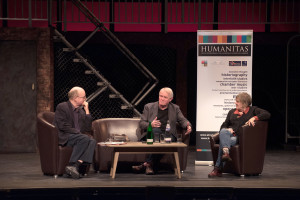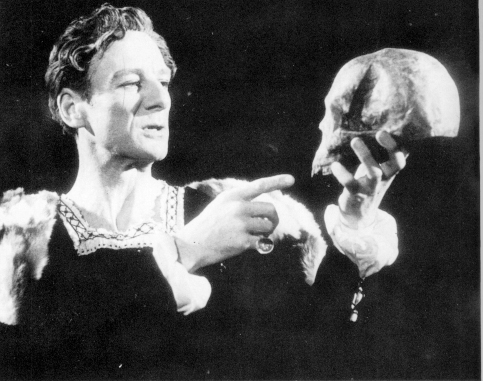The last week at Oxford has seen a wealth of theatrically minded people take to the stage to discuss the state of modern playmaking. Taking the lead on this discussion has been David Edgar; one of the most prolific dramatists of the post 1960s generation known for his writing of the Iron Curtain Trilogy and Written on the Heart, as well as being a regular contributor to the Guardian.
 With a nod to Roland Barthes, Edgar asked the question: ‘Is the Playwright Dead? (And if not, should s/he be?)’ and the various responses offered suggested that whilst the act of creating plays is indeed alive and kicking, the concept of a singular playwriting entity is perhaps becoming outmoded by the newer idea of devising- something which offers a more collaborative- and perhaps democratic- approach to playmaking.
With a nod to Roland Barthes, Edgar asked the question: ‘Is the Playwright Dead? (And if not, should s/he be?)’ and the various responses offered suggested that whilst the act of creating plays is indeed alive and kicking, the concept of a singular playwriting entity is perhaps becoming outmoded by the newer idea of devising- something which offers a more collaborative- and perhaps democratic- approach to playmaking.
Two playwrights who have experience of working alone and of collaborating with others are April de Angelis and David Greig. They joined David Edgar to discuss the process of writing a play, and gave a detailed insight into how planning and structuring work. It was interesting that de Angelis expressed having a clear vision of how her plays start and finish, whereas Greig admitted to a more chaotic, free-writing process where a mass of fragments are written and then only afterwards is some sort of order imposed. Both de Angelis and Greig also commented on their experience of collaborative work, which they found to be liberating and productive in the sense that they worked with greater speed and assurance. But, as de Angelis acknowledged in the case of ‘Catch’ which played at the Royal Court and was a collaboration between Laura Wade, Stella Feehily, Tanika Gupta, Chloe Moss and herself, the end product wasn’t always as finessed as when she worked alone.
The final discussion brought together four speakers from different areas of Theatre; Michael Billington, a critic; Rachel De-lahay, a playwright; Chris Goode, a theatremaker; and Dr Liz Tomlin, an academic. David Edgar chaired the discussion, probing each speaker on their views about collaborative work versus individual playwrights. Goode and Tomlin held forth on the positivities of the devising process, claiming that an audience can appreciate the democratic methodologies behind it- even if the final product wasn’t always the best that it can be. As Goode said, “devising is much harder and much likelier to fail…and that’s why I’m attracted to it.” Michael Billington was keen to interrogate Goode on his definitions- pushing for clarification on terms such as ‘literary plays’ and ‘author function’, and, while the former term was not clearly expounded upon, the latter was thoroughly debated.
The discussion came to an end on a point of agreement; namely, that while the singular playwright might have less representation in the modern theatre world, there will always be someone who fulfils the author function, whether that is a director, producer, or, in the case of a verbatim piece, an ‘editor’. All in all, the week-long series provided a platform for lively debate and the highlights of these talks will soon be made available for all to watch.



